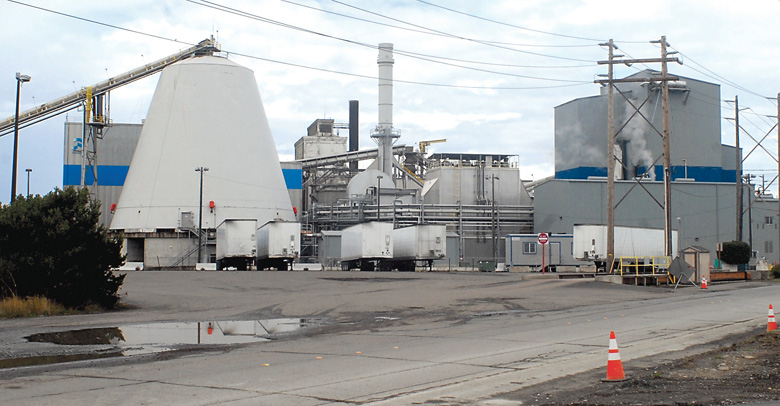PORT ANGELES — In just nine weeks, Nippon Paper Industries USA and biomass-boiler manufacturer FSE Energy had been set to do battle in federal court over $17 million in disputed monetary charges.
Instead, Nippon and Covington, La.-based FSE Energy have reached an out-of-court settlement involving Nippon’s $85 million biomass cogeneration plant, the companies announced last week.
But who gets what in the end is a mystery: The settlement terms are confidential, according to the companies’ joint statement, issued Thursday.
In addition, the finger-pointing is no longer being played out under the bright lights of easily available court documents.
Neither Nippon nor FSE admitted liability over the defective boiler in the statement issued by FSE lawyer David Bransdorfer of Ada, Mich.
“We’re supposed to say only that the case has been settled,” Bransdorfer said in an interview.
A 12-day jury trial had been set for March 7 in U.S. District Court for the Western District of Washington, according to court documents.
Trial briefs, jury instructions and proposed voir dire, or a set of questions for prospective jurors, was due Feb. 26.
FSE had sued Nippon in November 2014 for breach-of-contract, seeking $6.2 million.
The company asserted Nippon was responsible for damaging a biomass boiler mud-drum that had to be replaced and ballooned FSE’s $38.9 million contract to $43.7 million in expenditures for which it billed Nippon.
Among the egregious acts, FSE said, was Nippon repeatedly hosing down an empty, hot mud drum, which holds steam, with cold water, allegedly causing stress fractures in the vessel.
Nippon countersued, seeking $10.8 million.
The paper manufacturer blamed FSE for procuring and installing a defective mud drum and for misaligning the mud drum with an adjacent steam drum by more than 1 inch.
Nippon said that resulted in seepage of water droplets and contaminants that damaged turbine blades that were intended to produce electricity — and add profit to the company’s balance sheet.
“FSE Energy filed suit against Nippon Paper in the United States Federal District Court for the Western District of Washington in Tacoma to collect sums allegedly due under the contract on Nov. 21, 2014,” said the joint statement issued by FSE’s lawyer.
“Nippon Paper filed a counterclaim alleging a variety of complaints about FSE Energy’s performance.
“FSE Energy and Nippon Paper settled their dispute out of court.
“Neither party admitted liability and the terms of the settlement are confidential.”
The boiler, which burns woody debris to generate steam for the plant, is the key component in Nippon’s costlier-than-expected biomass cogeneration plant, which was pegged to cost $71 million when it was announced in August 2010.
The plant also was touted as an environmentally friendly “green energy” project that would spew less pollution than the oil- and biomass-driven boiler it was replacing.
The plant was dedicated with much fanfare in November 2013 but was plagued by full-capacity startup delays that were exacerbated by the defective boiler.
“The boiler is now online and the assembled turbine is producing electricity,” according to the joint statement supplied by Bransdorfer.
Bo Thibaut, CEO of FSE, said in the news release that the company was “pleased” to resolve the legal actions.
And Nippon mill manager Steve Johnson said Nippon is “satisfied with the outcome.”
Johnson declined to comment Tuesday after being asked in an email for an update on the boiler’s performance and company efforts to retool the plant after last year’s shutdown of one of Nippon’s two paper machines.
“We are not going to have any comment on the settlement with FSE or current operations at this time,” Johnson said.
In a June 12 interview with the Peninsula Daily News, Johnson said the company was continuing to address operational problems with the boiler.
“We’re still tweaking it,” he said.
As part of a $1.22 million project, Nippon purchased a new paper-pulping machine in mid-2015 that will be fed recycled paper.
Nippon has been planning to refocus its production away from telephone book paper, which it has produced in a declining market, to other forms of fiber.
Nippon employed about 160 hourly and salaried employees as of mid-June.
________
Senior Staff Writer Paul Gottlieb can be reached at 360-452-2345, ext. 5060, or at pgottlieb@peninsuladailynews.com.
